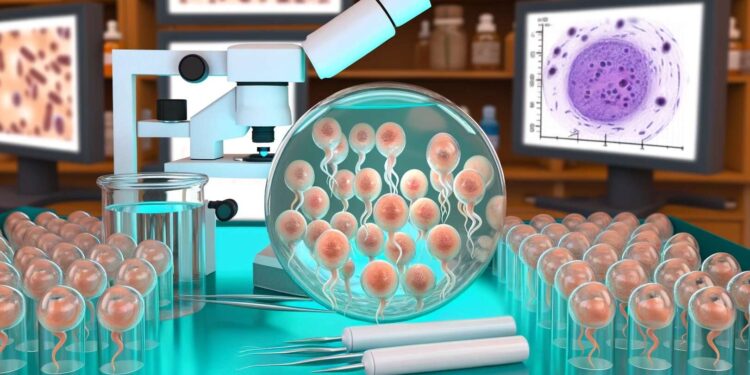Like all organoids, artificial testes produced in the laboratory will make it possible to study organ development and associated diseases. They should facilitate the possible production of sperm to combat infertility.
The testicle is responsible for the production of sperm and the synthesis of testosterone. However, abnormalities in the development and function of the testicle lead to disorders of sexual development and male sterility. Around one in twelve men of childbearing age experience infertility problems worldwide. Models of artificial organs (organoids) resemble natural organs and make it possible to study their development and associated diseases.
Israeli researchers have succeeded in creating tiny organs that resemble the tubular structures of a natural testicle. The results of the study are published in theInternational Journal of Biological Sciences. The research team collected immature testicular cells from newborn mice. The cells were successfully cultured in the laboratory for nine weeks, which is theoretically long enough to complete the process of producing sperm and secretionsecretion ofhormoneshormones.
Hope for treating male infertility
Scientists don’t yet know if this model will actually produce sperm, but they have already noticed signs of the beginning of sperm. meiosismeiosisa process during which gametesgametes are produced. Researchers now hope to be able to produce testicular organoids from human samples to treat infertility. “ The development of a cancercancer in pre-pubescent boys, followed by treatment chemotherapychemotherapy and of radiotherapyradiotherapycauses sterility in one in three boys », they write. The objective is to cultivate these organoids from biopsiesbiopsies children with cancer and produce fertile sperm.



